Building your advocacy competence: fact sheets
It is important that organisations wishing to engage in public private dialogue and private sector advocacy build their competence as quickly as possible. These factsheets are intended to give a brief overview and will be suitable for members of BMO boards or colleagues looking for a basic understanding. People working more intensely in dialogue and advocacy will prefer the extra detail that is available in the handbooks originally written to accompany a range of training courses. The factsheets can be downloaded and printed for your own use. If you would like to see additional topics, please let us know and we will endeavour to fulfil your wishes. Or maybe you could provide a fact sheet that can be provided through this website. If you are looking for other assistance, try the resources page with its links to materials prepared by other organisations.Introduction to advocacy
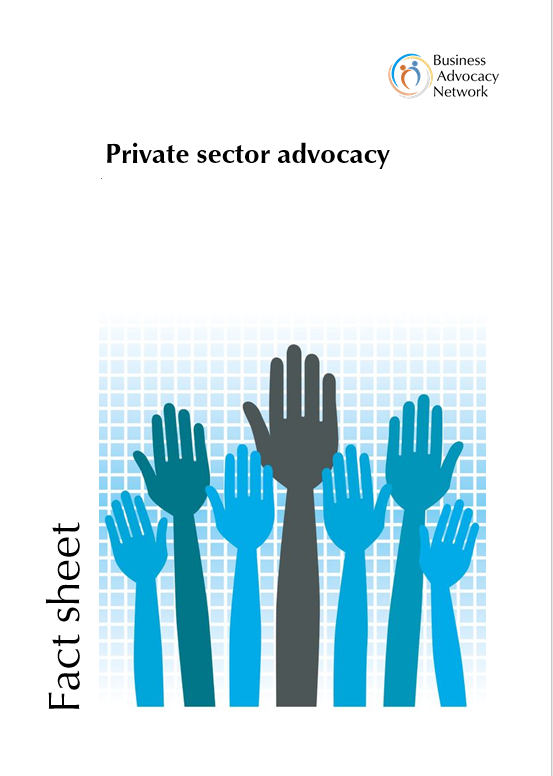
Private sector advocacy:
Basic introduction to public private dialogue and private sector advocacy
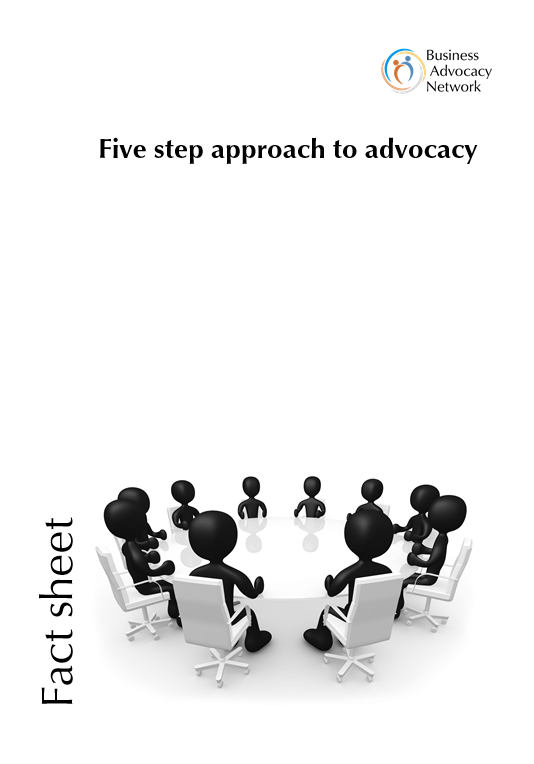
Five step approach to advocacy:
Effective advocacy requires a simple and logical approach.
Identifying issues
Understanding issues

Undertaking research:
Introduction to what you need to do if you undertake your own research

Commissioning research:
You may prepfer to commission a researcher to undertake research on your behalf
Preparing policy positions
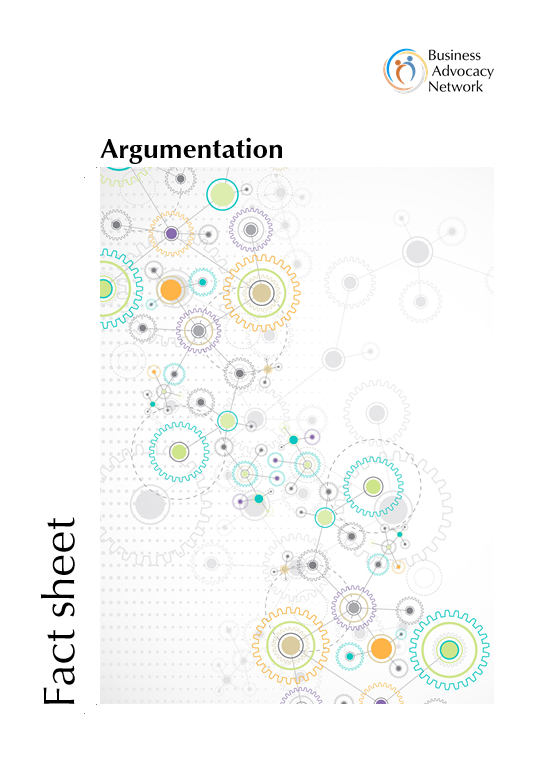
Preparing compelling arguments:
Intgroduction to making effective and persuasive arguments

Policy position step by step:
Introduction to the content and structure of policy positions
Influencing policy makers
Influence
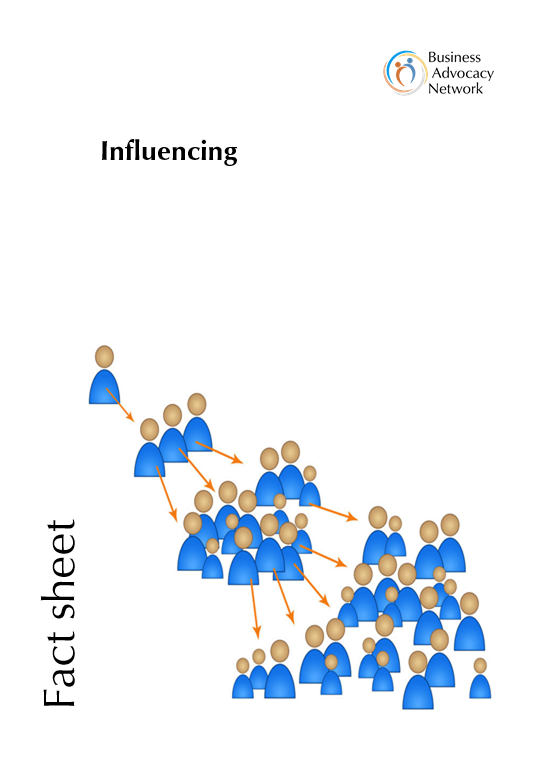
Influence:
A short introduction to influencing
Communications
Follow up
Managing advocacy projects
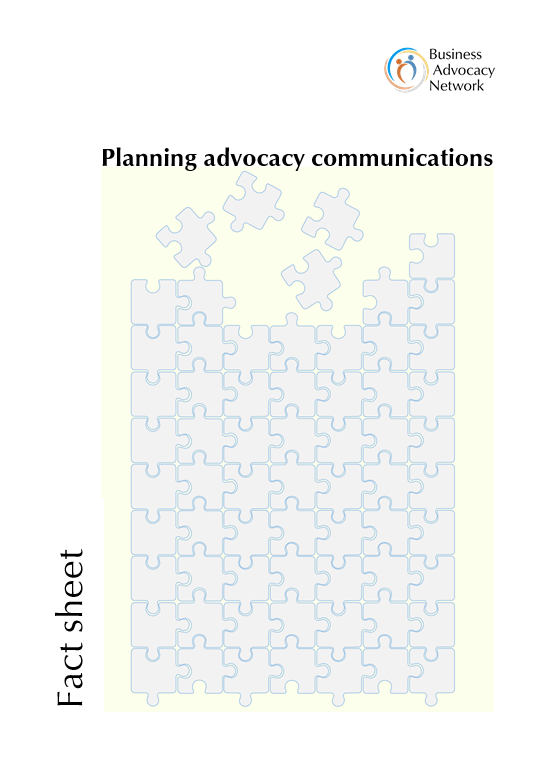
Planning advocacy communications:
Preparing a detailed advocacy communications plan

Model code of ethics:
This model code will help you prepare your own code of ethics
Members & member services
The fact sheets are listed here in alphabetical order:
- 5 Step Approach to Advocacy: explanation of fives simple steps
- Accounts in an Envelope: a simple method for accurate project book-keeping
- Advocacy: an introduction
- Alternatives to regulation
- Argumentation
- Building coalitions
- Communication skills
- Cost Benefit Analysis: an introduction
- Critical Path Analysis: for use in project planning
- Customers First: delivering top quality customer service
- Discount cash flow: calculating net present value (to use in cost benefit analysis)
- Ethics: model code: BAF now requires that supported BMOs already have a code of ethics or agree to adopt one. This model code will help you prepare one.
- Financial control
- Financial ratios: making sense of profit & loss and balance sheet
- Financial statements: understanding profit & loss and balance sheet
- Focus groups
- Gantt charts: for use in project planning
- Governance
- Grass roots support
- Identifying issues
- Influencing
- Managing teams
- Member services: how can your BMO earn income - delivering services might be one answer
- Model contract: for when you appoint consultants
- Model terms of reference: for when you appoint consultants
- Negotiation
- Planning advocacy communications
- Press releases
- Principles of good regulation
- Preparing policy positions
- Structuring effective policy positions
- Project costing
- Project management
- Public relations
- Raising sponsorship
- Assessing the quality of research reports and policy positions
- Research commissioning: using consultants to undertake your research
- Research undertaking: what to look for when doing your own research
- Regulatory Impact Analysis
- Managing risk
- Role of BMOs
- Sample size: for when you are undertaking surveys
- Strategy
- Surveys
- SWOT
- Understanding the public sector
- Values
